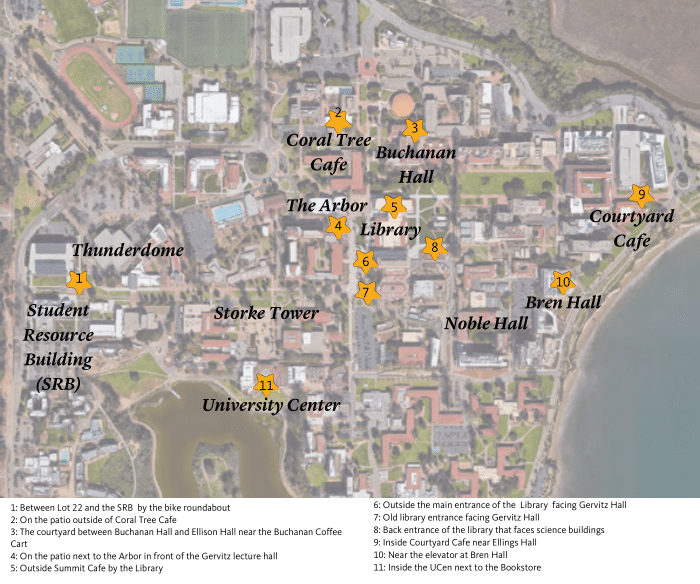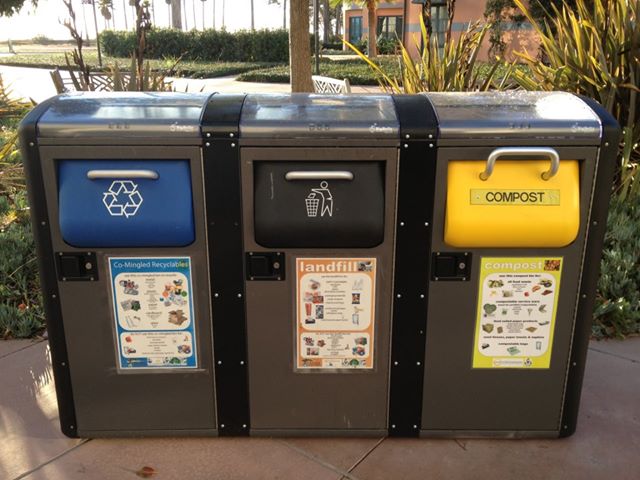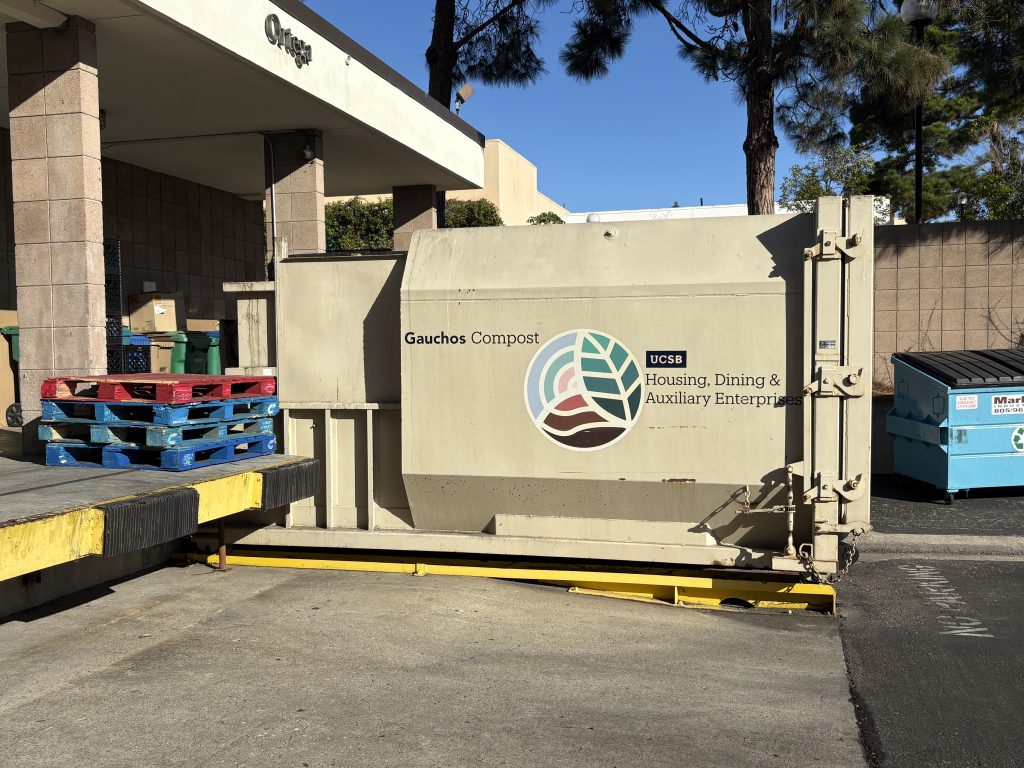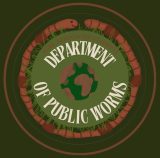UCSB Composting
The Department of Public Worms isn’t the only entity on campus that composts. UCSB has many organizations and programs in place to further campus sustainability. We are just part of a large food waste reduction initiative. Here are some ways that UCSB composts on campus and how YOU as a student or faculty member, can help campus become a bit more green!
Compost Drop-Off on Campus
Although we don’t manage any of the waste receptacles on campus, they are still a great way to support our goal! Scatter across UCSB there are many waste bins that encourage students to split up their waste by compost, landfill, and recyclables. More info on these bins can be found on the Associated Students Recycling website. These bins can be used by anyone on campus and can hold any food scraps or compostable ware!


UCEN & Dining Services Composting
UCSB generates a large amount of food scraps, more than our department can deal with! Our capacity and the type of composting we do also can’t accommodate certain waste products. This is why industrial composting and UCSB programs on campus are important to help the overarching goal of minimizing food waste. All food waste generated at the Housing and Residential Services Dining Commons and at the UCEN is diverted from the landfill through an industrial composting program. Both departments collect all scraps from the kitchen including fruit & vegetable peels, stems, and even meats and dairy that can’t be processed onsite by Dept. of Public Worms Worm Wranglers. The Dining Commons also composts post-consumer food waste left on dining-ware after meals. Several outlets at the UCEN such as Root 217 and Starbucks, have converted to all compostable products like compostable cups, plates, utensils, to-go containers, and of course napkins. Collectively, these two departments compost about 90 tons of food waste every month. The Dept. of Public Worms is not equipped to deal with such large quantities on campus, so all Dining Commons and UCEN food waste is picked up once a week by Marborg then taken to a commercial composting facility called Engel and Grey. This will also improve with the addition of Santa Barbara County’s ReSource Center.

Composting in Isla Vista
While the Dept. of Public Worms does not provide composting in Isla Vista specifically, we work very closely with those who do! There are multiple compost site throughout Isla Vista in gardens open to all community members, courtesy of the Isla Vista Compost Collective and the Edible Campus Program. Check out our partners page to learn more!
